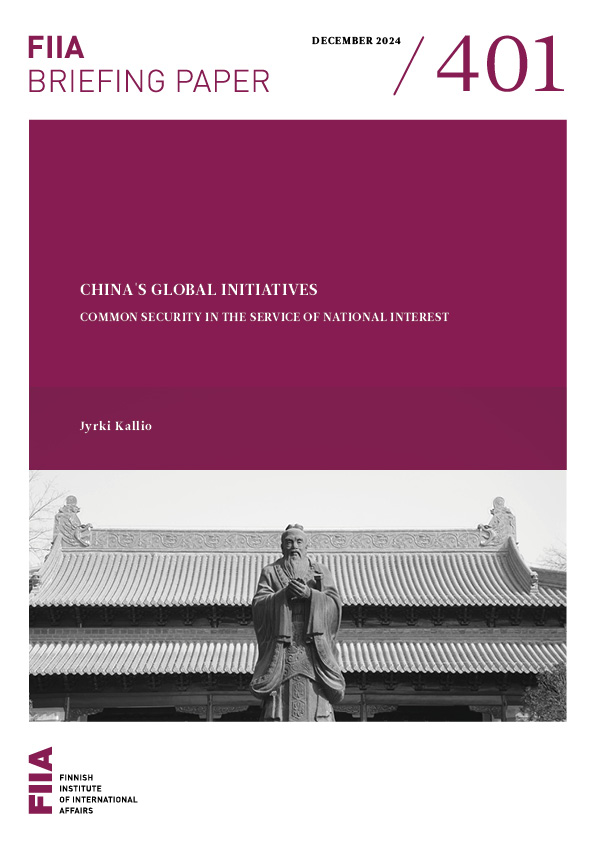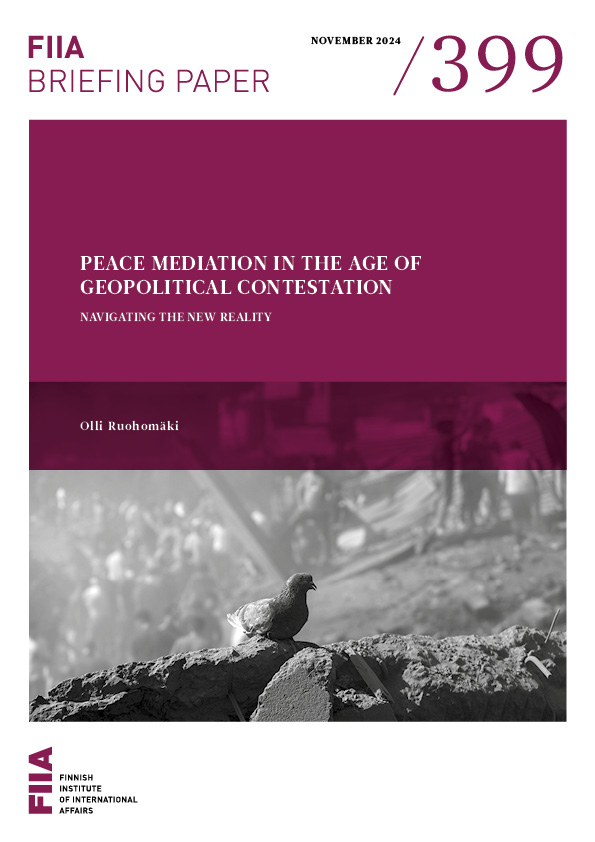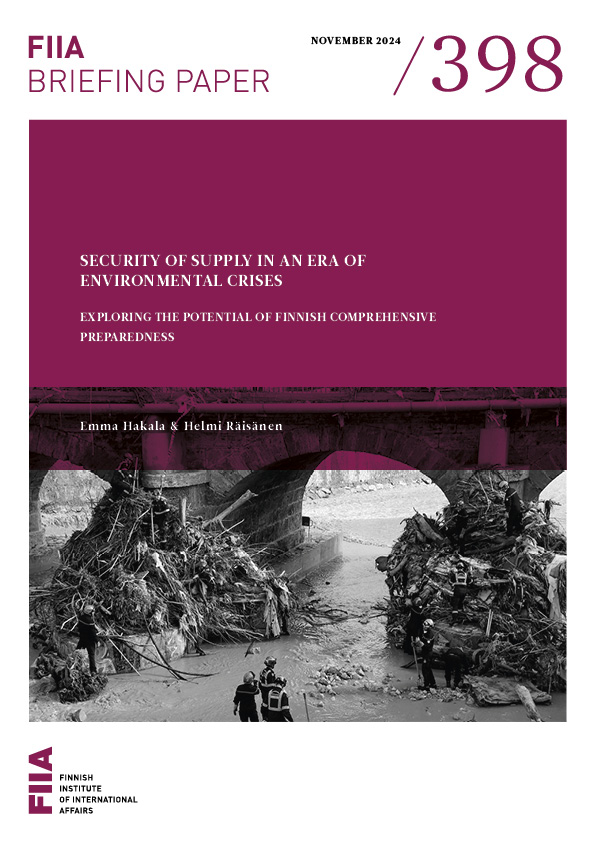The leaders of Mainland China and Taiwan will meet in Singapore on Saturday. The meeting has great symbolic significance but it is likely to have only a fleeting effect on the relations between the two sides. The upcoming election in Taiwan may well give power to a party which Mainland China views with the utmost suspicion.
China has been a divided state since 1949. The relations between Mainland China, governed by the People’s Republic of China, and Taiwan, under the de facto control of the Republic of China, can be characterized as a frozen civil war. Neither party recognizes the legitimacy of the other as the sole ruler of all China. Mainland China considers Taiwan its province, whereas the island is officially known as the “Republic of China on Taiwan” by the local authorities.
While all manner of trade, tourism, and people-to-people exchanges flourish across the Taiwan Strait as they would between any two amicable nations, politically both sides have set reunification as their ultimate goal. The Mainland is prepared to use force to reach that goal if all else fails.
No one in Taiwan seriously envisages exerting control over the Mainland any more, but the governing party, the Kuomintang, cannot forego its principal position as the government of China, not of Taiwan. Politically, the situation has remained in gridlock for decades, and the tightening integration in other fields has not had the effect of alleviating the basic dispute.
The leaders of Mainland China and Taiwan, Xi Jinping and Ma Ying-jeou [pinyin: Ma Yingjiu], will meet in Singapore on Saturday. The meeting has been hailed as historic because never before have incumbent presidents of the People’s Republic and the Republic of China met.
However, the leaders do not recognize each other as heads of state, and the historic-ness is further undermined by the fact that the leaders will address each other just as “Mr Xi” and “Mr Ma”, respectively.
From the point of view of Mainland China, the meeting is not entirely historic because meetings of party leaders across the Taiwan Strait have been organized previously. Xi is the General Secretary of the Communist Party, and Ma was the Chairman of the Kuomintang until December last year. In 2005, President Hu Jintao, acting in the capacity of the General Secretary, met with the chairman of the Kuomintang, Lien Chan [Lian Zhan]. At that time, Lien’s party was in opposition, and the presidency of the Republic was held by Chen Shui-bian [Chen Shuibian] of the Democratic Progressive Party (DPP).
The meeting is not expected to result in anything more than a handshake and a photo, but it will have great symbolic significance. Xi Jinping can present himself as a peace-loving, magnanimous statesman, and Ma Ying-jeou can emphasize the role of the Kuomintang as the guarantor of good Mainland relations.
The Kuomintang adheres to the so-called 1992 Consensus, which states that there is only one China. This Consensus has brought about a thaw in Mainland-Taiwan relations in recent years. This, in turn, has been manifested in improved economic relations. However, the Consensus has very limited effectiveness because the two parties have very different interpretations of its meaning. According to the Kuomintang, both parties are free to interpret “one China” as they wish. From the point of view of Mainland China, China is China, namely the People’s Republic of China. Therefore, the principal schism remains.
Saturday’s meeting is likely to signify a bigger concession on the part of Taiwan than Mainland China. After all, Taiwan has always demanded that bilateral meetings should be arranged on an equal basis, either between two governments or two political parties. China has never agreed to inter-governmental meetings, and the Mainland media report that the upcoming meeting is to take place between “the leaders representing both sides of the Taiwan Strait” without any reference to governments, let alone states. Despite these circumstances, the initiative for the meeting most likely came from Taiwan, the reason probably being the elections scheduled for January next year.
According to opinion polls, the DPP will claim victory, and its candidate, Tsai Ing-wen [Cai Yingwen], is expected to become the first female president of the Republic of China.
The roots of the DPP are embedded in the opposition movement which called for Taiwan’s separation from China, and among the DPP membership there are still those who favour Taiwanese independence as the “Republic of Taiwan”. In particular, those voters who identify themselves as Taiwanese vote for the DPP, and their numbers are on the rise. Increasingly fewer young people in Taiwan would identify themselves as Chinese.
It seems probable that Ma Ying-jeou is trying to boost support for the Kuomintang by showing that they are the political force in Taiwan which Mainland China feels most comfortable dealing with. In the light of the changing identities, it can be expected that the effort will actually backfire, perhaps leading to a landslide victory for the DPP in January.
The era of the previous DPP government (2000–2008) was a cold and stormy period in Mainland-Taiwan relations. While Tsai Ying-wen has pledged to maintain the status quo in regard to Taiwan’s status and not to advocate Taiwanese independence, Mainland China does not trust the DPP. They would much rather continue talking with the Kuomintang, which they already know from the days of the Chinese civil war, albeit as an adversary. This may be the reason why Xi Jinping agreed to hold the meeting with Ma Ying-jeou.
It is nevertheless possible that the meeting will be the last of its kind. According to the political weather forecast, the relations are getting frosty, and it might soon be too cold and slippery to tango.







